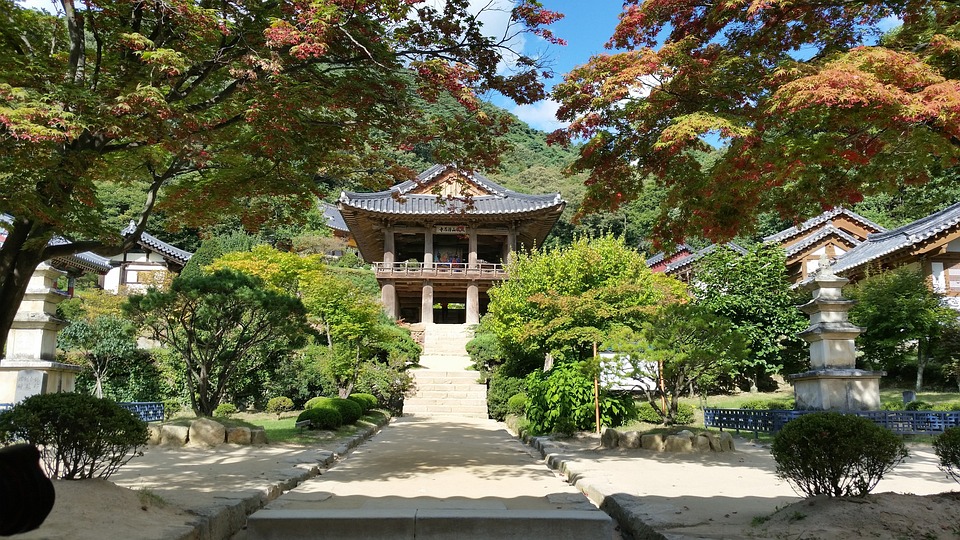A high court in South Korea rejected the claim by a Buddhist temple to a statue that it alleged Japanese pirates looted in the 14th century. The decision by the high court would clear the way for Japan to seek its return.
On Wednesday, a South Korean high court overturned the 2017 decision that was in favor of the Buseoksa Buddhist temple. The court cited that the government must now return the statue in the proper way. The court said that even if the statue was owned by the Buseoksa temple in the 1300s, there was not enough evidence to determine that the temple maintained its “identity and continuity “ over the years.
The 20-inch gilt bronze statue of a Buddhist Bodhisattva was stolen from a Japanese temple in 2012 by South Korean thieves, who sought to sell the statue upon returning but were caught. In 2016, the Buseoksa temple filed a claim to the statue, alleging that Japanese pirates looted the statue in the 14th century.
“The defendant needs to deal with the issue of returning the statue in consideration of international law, norms, and conventions concerning the protection and return of cultural properties,” said the court.
An official at the temple told reporters it would file an appeal to the South Korean Supreme Court and try to find more evidence to support its claim. The South Korean foreign ministry referred the questions about the case to the Cultural Heritage Administration, with an official of the agency saying it does not comment on court decisions.
In Tokyo, Japanese Chief Cabinet Secretary Hirokazu Matsuno said Japan will take follow-up action in consultation with South Korea and the Japanese temple in question.
Over the weekend, Japan’s Sankei newspaper reported that Tokyo is considering relaxing export controls to South Korea as South Korean President Yoon Suk-yeol Japan will decide whether to ease the controls on shipping high-tech materials that it imposed in 2019 due to a dispute over Japan’s wartime forced labor of Korean workers, as the two countries sought to resolve the issue, according to sources familiar with the matter.
The issue of resolving the issue of export controls may likely take place during the consultations between the two countries on various issues.



 U.S. Lawmakers to Review Unredacted Jeffrey Epstein DOJ Files Starting Monday
U.S. Lawmakers to Review Unredacted Jeffrey Epstein DOJ Files Starting Monday  Federal Judge Restores Funding for Gateway Rail Tunnel Project
Federal Judge Restores Funding for Gateway Rail Tunnel Project  Trump Allows Commercial Fishing in Protected New England Waters
Trump Allows Commercial Fishing in Protected New England Waters  Nighttime Shelling Causes Serious Damage in Russia’s Belgorod Region Near Ukraine Border
Nighttime Shelling Causes Serious Damage in Russia’s Belgorod Region Near Ukraine Border  Missouri Judge Dismisses Lawsuit Challenging Starbucks’ Diversity and Inclusion Policies
Missouri Judge Dismisses Lawsuit Challenging Starbucks’ Diversity and Inclusion Policies  Ohio Man Indicted for Alleged Threat Against Vice President JD Vance, Faces Additional Federal Charges
Ohio Man Indicted for Alleged Threat Against Vice President JD Vance, Faces Additional Federal Charges  Pentagon Ends Military Education Programs With Harvard University
Pentagon Ends Military Education Programs With Harvard University  South Korea Assures U.S. on Trade Deal Commitments Amid Tariff Concerns
South Korea Assures U.S. on Trade Deal Commitments Amid Tariff Concerns  U.S. to Begin Paying UN Dues as Financial Crisis Spurs Push for Reforms
U.S. to Begin Paying UN Dues as Financial Crisis Spurs Push for Reforms  Netanyahu to Meet Trump in Washington as Iran Nuclear Talks Intensify
Netanyahu to Meet Trump in Washington as Iran Nuclear Talks Intensify  Trump Signs Executive Order Threatening 25% Tariffs on Countries Trading With Iran
Trump Signs Executive Order Threatening 25% Tariffs on Countries Trading With Iran  Trump’s Inflation Claims Clash With Voters’ Cost-of-Living Reality
Trump’s Inflation Claims Clash With Voters’ Cost-of-Living Reality  New York Legalizes Medical Aid in Dying for Terminally Ill Patients
New York Legalizes Medical Aid in Dying for Terminally Ill Patients  Trump Backs Nexstar–Tegna Merger Amid Shifting U.S. Media Landscape
Trump Backs Nexstar–Tegna Merger Amid Shifting U.S. Media Landscape  China Warns US Arms Sales to Taiwan Could Disrupt Trump’s Planned Visit
China Warns US Arms Sales to Taiwan Could Disrupt Trump’s Planned Visit  US Pushes Ukraine-Russia Peace Talks Before Summer Amid Escalating Attacks
US Pushes Ukraine-Russia Peace Talks Before Summer Amid Escalating Attacks 































